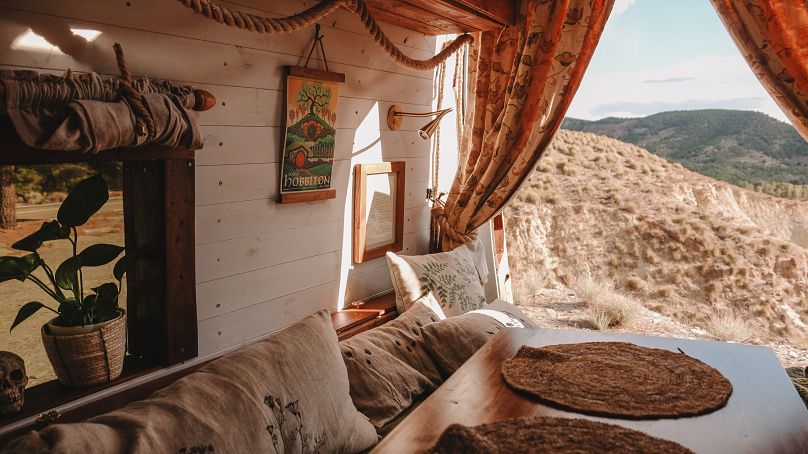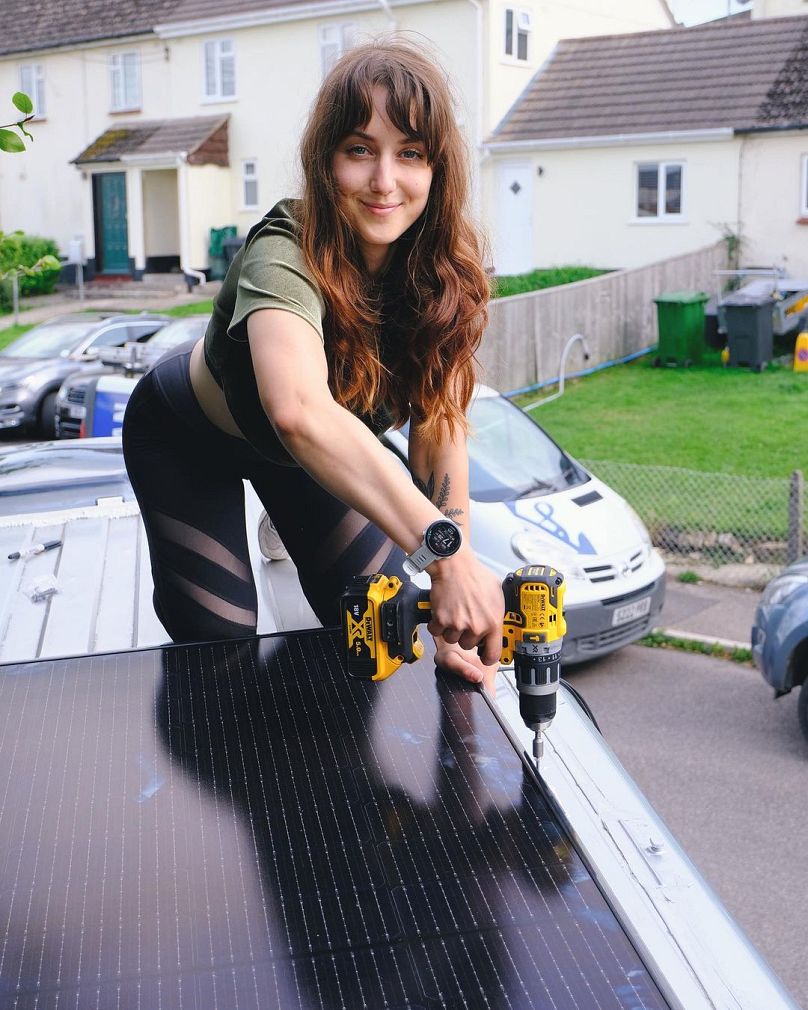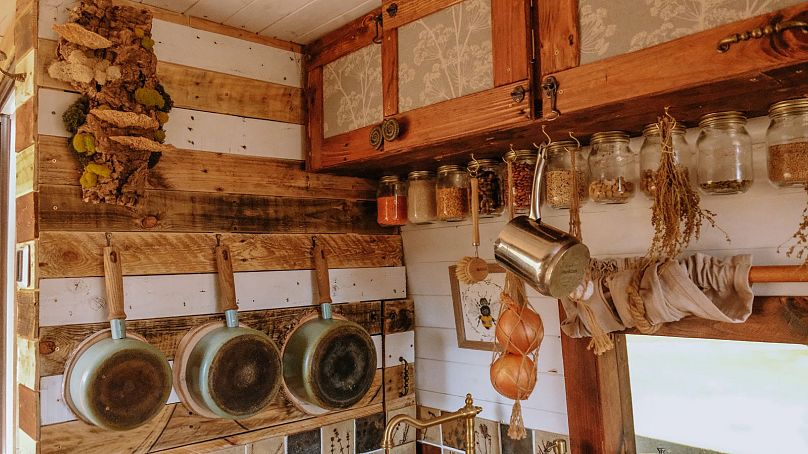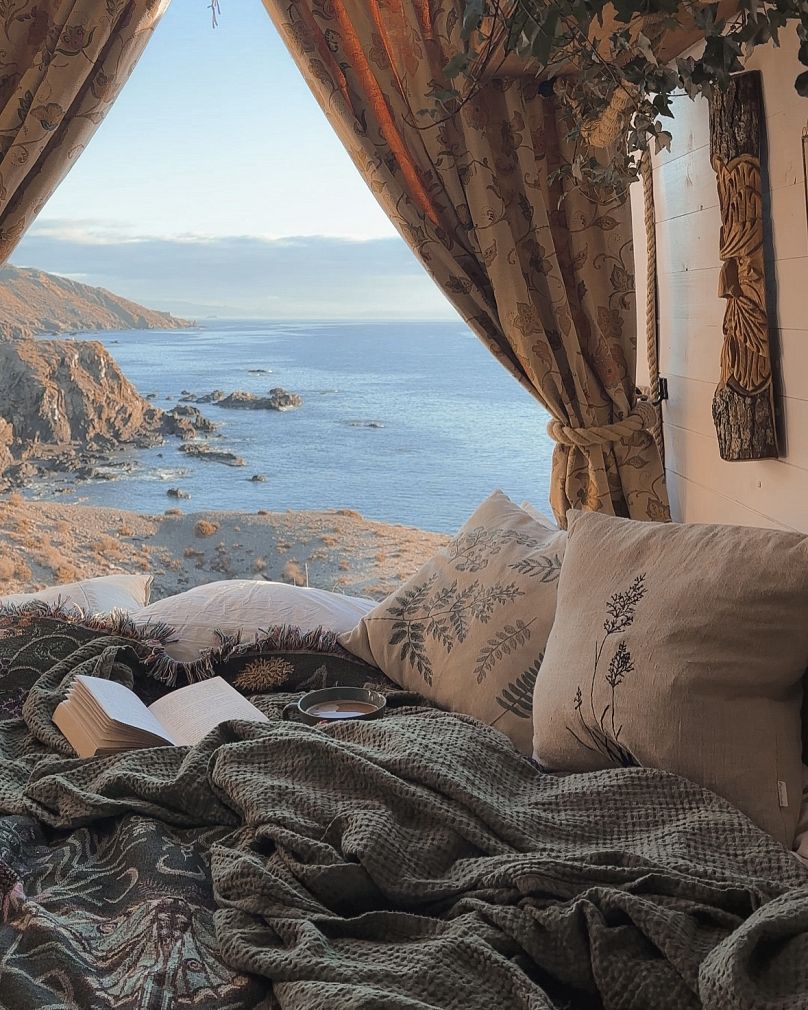From four walls to four wheels: How we live sustainably, from electricity use to food waste
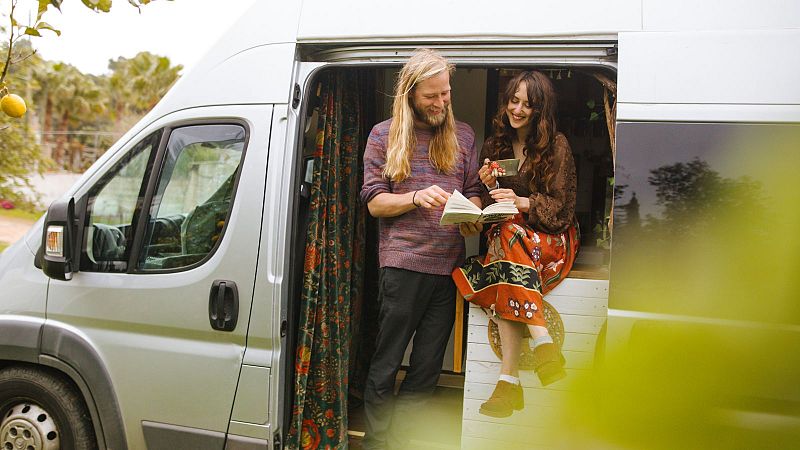
Living sustainably doesn’t have to mean sacrificing the things we enjoy.
In my younger years, I used to be a hoarder and fast fashion addict. But after becoming aware of the environmental impacts of over-consumption, I shifted towards minimising my possessions and prioritised experiences over material things.
My partner shares this minimalist philosophy, and when the cost-of-living crisis hit in 2022, we decided to convert a van and leave Wales - where we had met at university - for a simpler life travelling around Europe. We moved into a small apartment in Aberystwyth and saved up for a year to turn our wildest dreams into reality.
Van life is one of those things most people dream about at one point or another; living nomadically with few responsibilities, free of the confines of societal expectations, connecting to nature and discovering what life is really about.
Growing up as the child of Polish immigrants in Germany, I was always drawn to travel, but as an adult I started avoiding flying on holidays for environmental reasons. So travelling slowly over land and spending an extended period of time in each place seemed like an excellent compromise.
How we built our van in a sustainable way
It took me about a year to declutter all of the things I wouldn’t be able to take with me, and I thoroughly enjoyed the process of emotionally detaching myself from my stuff.
We’re lucky to both work in remote jobs - my partner in social media and I as a climate communications researcher - so leaving a four-walls setting was nearly seamless on that front.
After buying a second hand van last summer, we spent five months converting it into a cottage on wheels.
Doing van life sustainably started with our build, where we repurposed materials, opted for hemp insulation, and used reclaimed wood for interiors.
Choosing solar power over gas, we designed the van for winters in southern Europe and summers in the north to minimise our environmental impact.
To enable us to spend most of the week off-grid, we fitted a 96-litre water tank which we fill up once a week - that’s less than what the average person in the UK uses in a day. While we have a shower in the van, we also sometimes wash in the sea or a river instead to conserve water.
We have a compost toilet, only use natural products for cleaning and self-care, and we hold onto our trash, which we separate and recycle whenever we do a town run.
Our emissions are half the UK average
Some people are surprised to hear that our carbon footprint is now about a third lower than before, despite the fact that we went from not driving at all to travelling in a van full-time.
The main reason for this is that we don’t live in an apartment anymore, with our yearly driving emitting significantly less than heating an average UK home. Most of the time, we manage to stay in one spot for a week.
Overall, our lifestyle emits roughly half of the average UK footprint.
While I’m critical of the emphasis on individual carbon footprints given the fact that it was popularised by a fossil fuel company to shift blame away from polluting industries, it can be a useful metric for sustainable living.
How van life connects us to nature
Our typical day begins with opening our back doors to breathtaking views, drinking coffee and reading a book in bed.
So far we’ve stayed on beaches only metres away from the sea, Europe’s only desert (Tabernas), surrounded by the mountains and in the woods. If it’s in the middle of nature, it ticks the box.
We spend our mornings working our remote jobs, followed by afternoons exploring our surroundings, enjoying our hobbies, and doing the odd chore.
Maintaining a van isn’t that different from a small apartment - some things take slightly longer, such as washing our laundry by hand, while other tasks like cleaning and hoovering are considerably faster.
From eating with the seasons to composting
One of our favourite aspects of van life is how positively it has impacted our diets.
We spend six days a week off-grid and have limited fridge and storage space, which minimises temptations for unhealthy choices.
We eat with the seasons and only buy fruits and vegetables from the area we’re currently in, which adds a layer of excitement and connection with the places we visit.
Our kitchen was inspired by nature, with its botanical tiles, foraged archway and floral patterns - and we enjoy having this connection reflected in our diets, too.
Living in a small space has also made us keenly aware of food waste - we have a tiny caddy for scraps which we have composted or passed on to food growers - this is part of the reason we’re careful to eat almost exclusively local produce.
Van life has made us more aware of our water and electricity use
Another big change was our new awareness of how many resources we use - as we closely monitor our water and electricity usage. We plan around cloudy days with less solar input, and do all our town chores in one day in order to use less fuel.
We’re all so used to having a seemingly endless supply of these things that we’ve grown to use them in an irresponsible way.
Before, we had no clue how much electricity any of our appliances used. When you’re at home, you only get your bill at the end of the month and have little idea what has racked up your energy usage.
Living with limited resources, we’re constantly balancing our inputs and outputs, being forced to reach a natural equilibrium by our lifestyle. And we wouldn’t have it any other way.
How we give back to the places we visit
When we started this journey, we thought about how we could give back to the areas we visit and bring more structure into our travels.
This is where Road to the Future was born - a project documenting community-led environmental projects around Europe, showing people the many ways they can get involved to build a better future.
So far, it has taken us to pioneering initiatives fighting desertification in southern Spain and restoring underwater forests in Mallorca - later this year, we’re hoping to continue our journey towards Scandinavia and Eastern Europe.
In documenting these projects, we hope to inspire others to embark on their sustainable journeys, whatever that may look like.
Living on the road definitely comes with its own challenges. Not knowing where you will be next week, learning to function as a team in a very small space, not being able to receive post and having to tidy every day to prevent everything descending into chaos.
But the freedom and simplicity of living in nature is everything I ever wanted and more.
Most importantly, it’s given me a renewed sense of motivation. When you’re intimately connected with the natural world, you become conscious of what’s at stake.
Living small becomes not just a personal choice but a statement that we can live differently, whilst also living our best lives.


